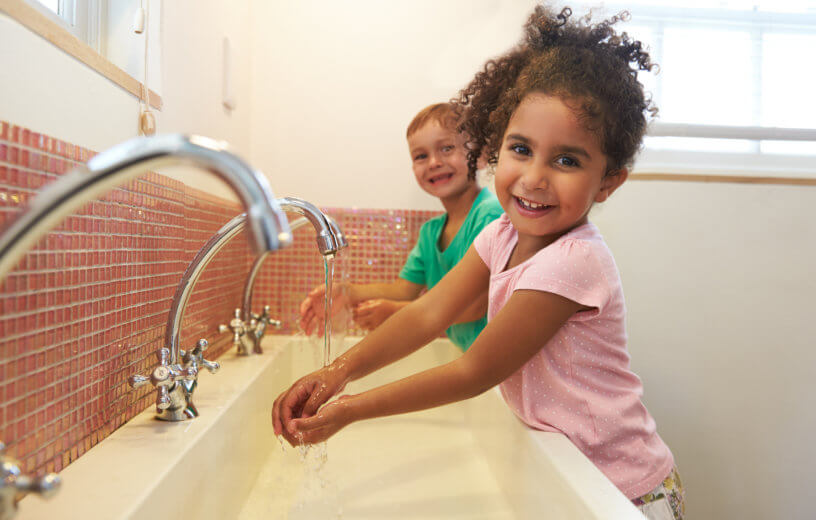LONDON — The theory that modern society is actually “too clean” – leading to weakening immune systems in children – is not something to take seriously, a new study argues.
Researchers in London say narratives claim 21st century societies are too hygienic, resulting in toddlers and young children being less likely to encounter germs. According to that narrative, it makes kids less resistant to allergies. However, the new report concludes humans are not “too clean for our own good” — citing four key reasons they say disproves the theory.
The “hygiene hypothesis” in medicine states that exposing children to particular microorganisms protects against allergic diseases as it develops their immune systems.
“Exposure to microorganisms in early life is essential for the ‘education’ of the immune and metabolic systems,” says study lead author Professor Graham Rook from University College London in a release.
“Organisms that populate our guts, skin and airways also play an important role in maintaining our health right into old age: so throughout life we need exposure to these beneficial microorganisms, derived mostly from our mothers, other family members and the natural environment,” Prof. Rook continues. “But for more than 20 years there has been a public narrative that hand and domestic hygiene practices, that are essential for stopping exposure to disease-causing pathogens, are also blocking exposure to the beneficial organisms.”
“In this paper, we set out to reconcile the apparent conflict between the need for cleaning and hygiene to keep us free of pathogens, and the need for microbial inputs to populate our guts and set up our immune and metabolic systems.”
Cleaning your house won’t remove beneficial microorganisms
Researchers add cleaning in the home and maintaining proper hygiene does not affect our exposure to the natural environment. Recent research shows that cleaning the home does not have a connection to allergies because of the removal of organisms.
“So cleaning the home is good, and personal cleanliness is good, but, as explained in some detail in the paper, to prevent spread of infection it needs to be targeted to hands and surfaces most often involved in infection transmission. By targeting our cleaning practices, we also limit direct exposure of children to cleaning agents,” Prof. Rook adds.
“Exposure to our mothers, family members, the natural environment, and vaccines can provide all the microbial inputs that we need. These exposures are not in conflict with intelligently targeted hygiene or cleaning.”
Microorganisms in a modern home are largely not the ones people need to spark immunity, researchers explain. Vaccines protect humans from infection and strengthen immune systems, so we do not risk dying when coming into contact with bacteria. There is also evidence that natural green environment organisms are important for our health.
The findings appear in The Journal of Allergy and Clinical Immunology.
SWNS writer Olivia Devereux-Evans contributed to this report.
